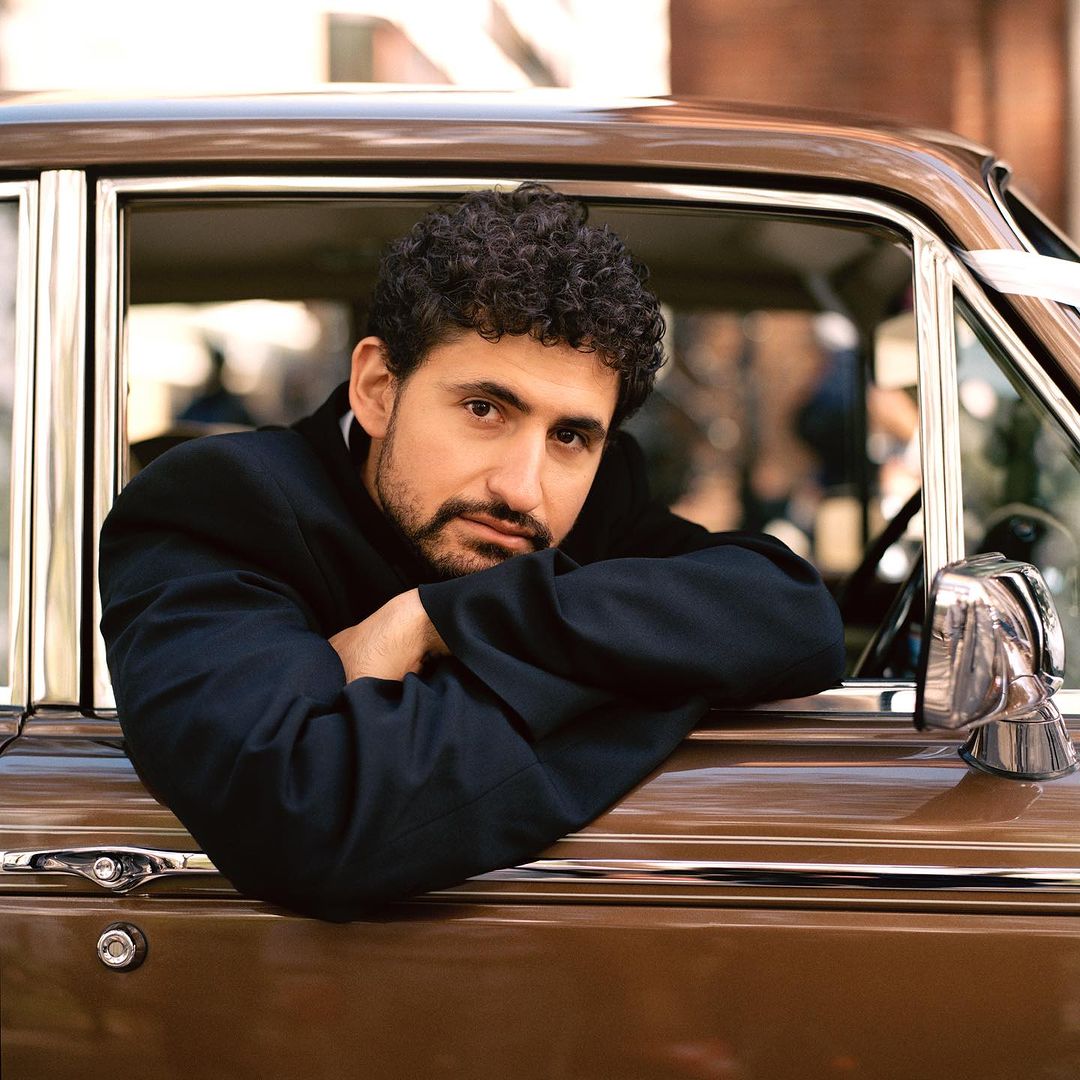The image of Sherif Ali played by Omar El Sherif in the 1962 epic ‘Lawrence of Arabia’, with his signature Aegyl tribesman headdress, has long been the go-to symbol of an Arab and Muslim in Hollywood.
How far has Hollywood and the film industry evolved from this image? We asked British Egyptian actor Amir El-Masry who plays Daniel Ramsay in the popular BBC series Vigil 2, now also available on DR, to reflect on the question from a Danish perspective.
El-Masry’s demeanor encourages inquisitiveness in those he meets. Speaking to The Copenhagen Post in between shoots, he describes the thinking behind the signature black-leather-jacket look that he wears in Vigil.
“We really focused on what he wears and how he looks, … to show that he looks after himself … he lives in London but he travels to Scotland, so he probably doesn’t have a big suitcase with him … he might have a number of items with him, a leather jacket is very versatile.”
Why not an overcoat like that worn by Columbo? He laughs and counters: “I chose the jacket … I like it, I didn’t want something stereotypical to wear. I wanted to make him his own person.”
“His name is Daniel … but he has origins from another country that is why in the first episode you see me saying one line in Arabic,” he adds.
El-Masry notes that Daniel is a positive representation of being Muslim: “He is British Arab… [he] wants to help – that is why we see him in the last episode doing everything he can to prove himself, he wants to solve this problem,” he says.
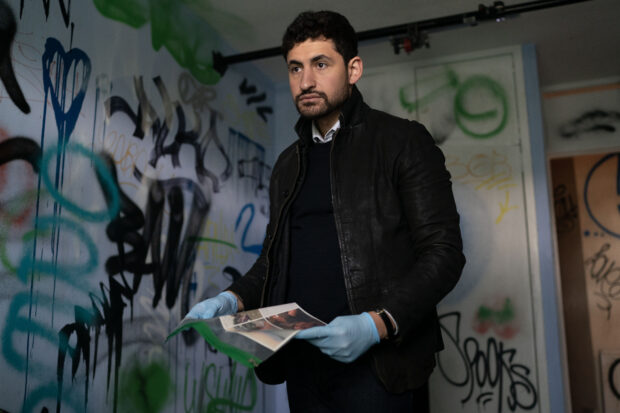
And so with Vigil as a whole, what kind of impression will it give Danish viewers about Muslims and Arabs?
“When you watch the whole series you will be surprised… the clever thing about the show, every person we have … it turns on its back, the whole time in the show you think certain people are villains and at the end you are going to be surprised, it is a question we put up to the society with the prejudices we have … we assume someone is something and then it turns out that he is the complete opposite.”
His voice trails off with a smile, and he says “I really hope that Danish viewers will be patient with the show and watch it from the start to finish.”
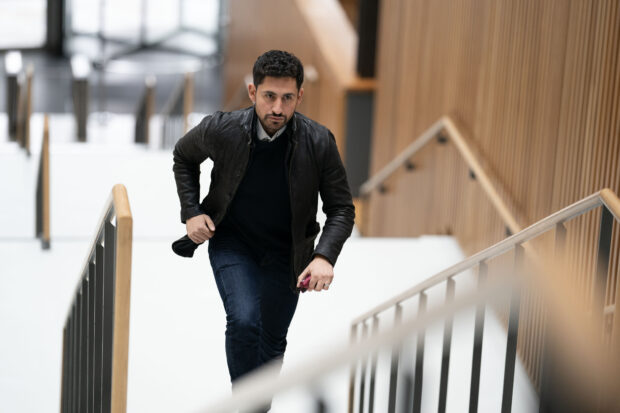
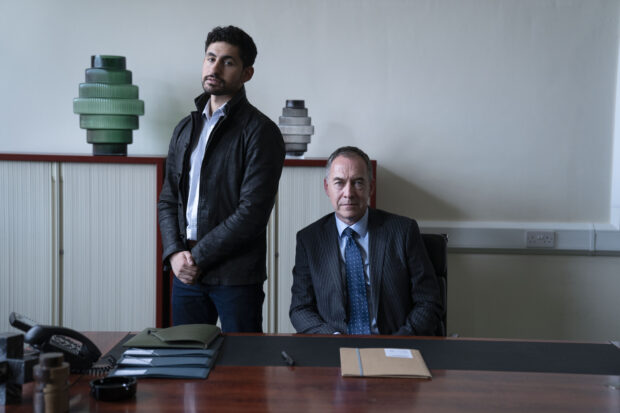
El-Masry’s gregarious high spirits seem rarely dampened. Speaking about his childhood, he describes, aged one, leaving Egypt for the UK with his family.
His parents encouraged his acting, he says. His mother took him to drama classes after school and even made the costume for his first play The Musician of the Pyramid. He played a cat.
Since then, El-Masry has deepened his love for his art, finding a refuge from his shyness in acting. He is addicted to performing on stage; he loves the crowd and – most importantly – portraying identities different from his own.
Ten years after his first play, El-Masry met Omar Al Sherif. He recounts the meeting with passion.
“Omar was an idol for me growing up, I grew up watching his movies. I met him in 2007. He told me, if you want to succeed you have to have the backing of your people; people who look like you, when they see you on the screen, they will say … that person is representing me. Hollywood is like a wave – one minute you are a hero and next minute you are the bad Muslim,” he says.
It was a life-changing moment for El-Masry, who comes from a different generation to Al Sherif.
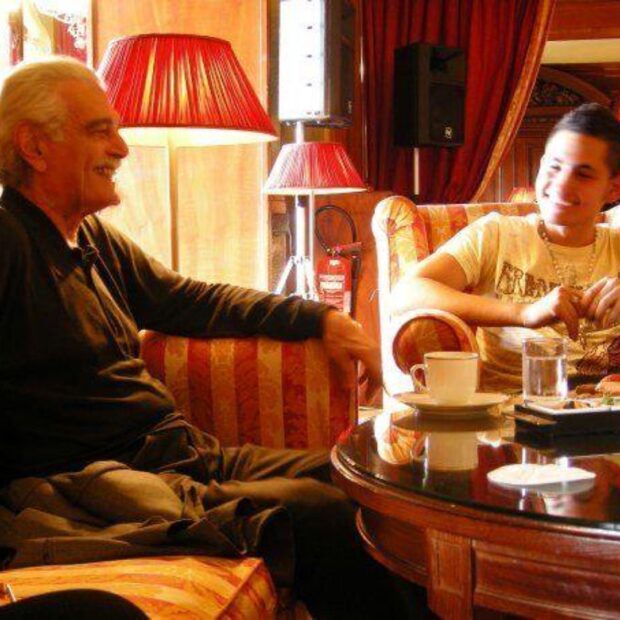
El-Masry says things have changed since then.
“I think there has been a positive change since Omar’s time. There were not many people like him, he was handsome Arab North African whose charm and talent transcended his background. However, a lot of things happened politically since then. Now there is no excuse to have stereotypical conceptions of Muslims and Arabs.”
El-Masry has had roles in several Danish projects, including Herrens Veje with Lars Mikkelsen, Daniel (Held for Ransom), Rides upon the Storm, The Night Manager and Club Zero.
He says he has a lot of fun working with Danish casts. “They take their work very seriously and they know how not to take themselves so seriously,” he says.
Clearly fascinated by Denmark and its people, he talks about Denmark with palpable affection. “In Denmark, I saw kindness and generosity,” he says.
“I have been always welcomed. I love Copenhagen. The Danes are very friendly; I stay at their homes whenever I go.”
El-Masry stayed with the Danish actor Esben Smed when he visited Denmark. They have become good friends, he says.
“I think Danish people are the most stylish people in the world, they know how to dress … they like comfort. When I stayed with Ebsen, I went to the meat packing district in Copenhagen. The food is exceptional. It is Michelin-star quality food. They have very good taste … even the not-meat dishes. They know how to cultivate food.”
As he paused to mused on those memories, I asked whether there is a contradiction between domestic politics in Denmark and the general public’s attitude towards Muslims and Islam.
“I think there is a problem with religion any way in Denmark. It is not just Islam…the concept of being religious is radical more than being anything else.”
“They are much freer in the concept of liberalism than other countries. Denmark is a very open country in many ways. What I admire about the Danes is that they follow a lot of religious concepts without realising.”
“In Islam we are taught to welcome everybody … we are taught to be peaceful. The Danes do that without being religious ironically, they open their arms to people who are different. These are the facets I grew up learning in Islam, and it is very interesting to see that religion is not necessarily at the centre of this.”
From his tone of voice, the subject seems to be one that is close to his heart. “Every time I went to Denmark or worked in Denmark, I always felt I wanted to go back. In Denmark people take care of each other, there is a concept of: this is all our space and all our land and all our people.”
His positivity and enthusiasm for the Danes is refreshing. What kind of project would he be tempted by, if he was to work in Denmark again?
He replied in his amiable and straightforward manner: “I want to work with people who are willing to develop the character with you … who are cooperative.”

